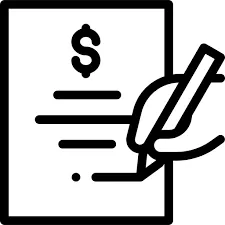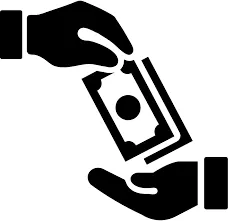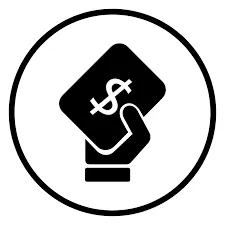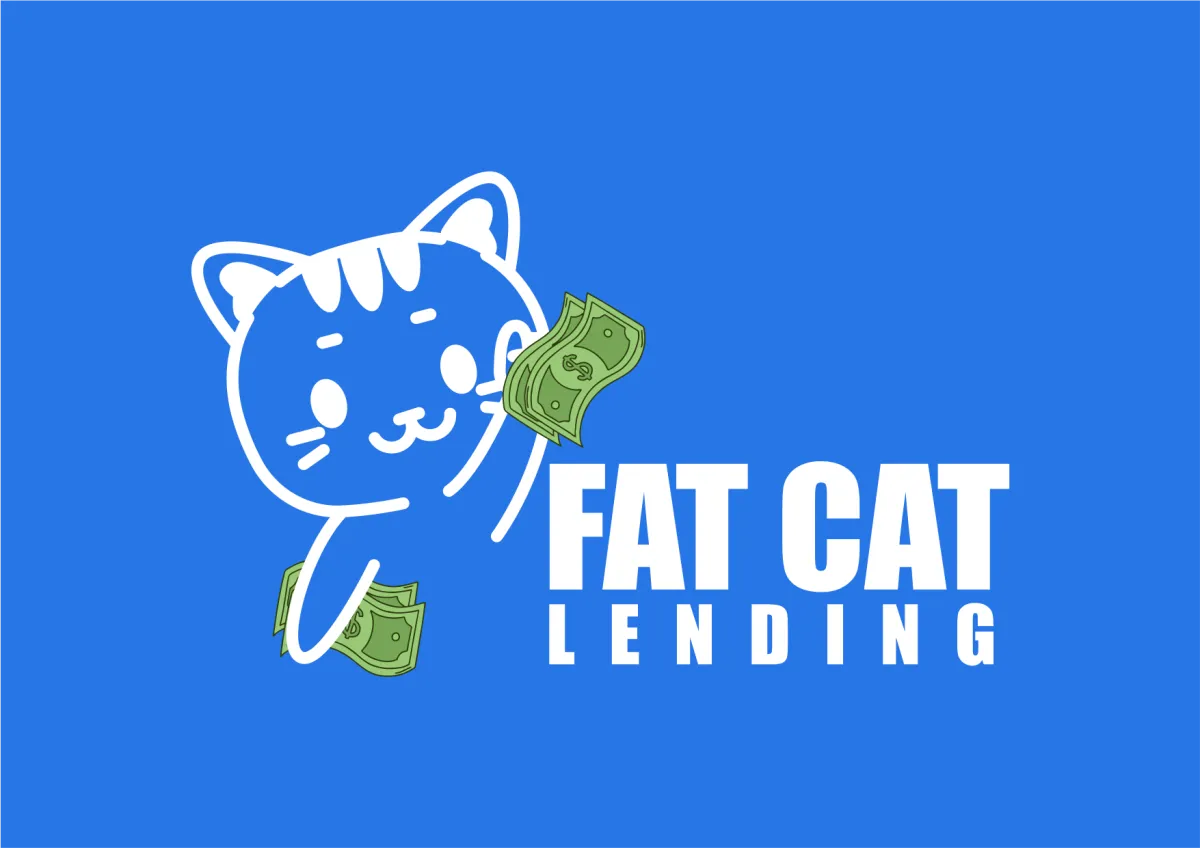
844-546-4393
844-546-4393
888-888-8888
Personal Loans.
Made Simple.
Get Match with A Lender in Minutes
Get Fast & Easy Funding in as little as 24 Hours
Why Fat Cat Lending?
If you need funds fast then you are at the right spot. Get cash fast with one of our thousands of reputable online lenders to lend you the funds you need in as little as 24 hours. Get matched with a lender in minutes through our fast & secure online loan request form in minutes. Check your rate in minutes without impacting your score!
3 Easy Steps

Request Amount
Complete our faster, easy & secure online form in just minutes.

Get Matched
Get Matched with one of our reputable lenders on our vast network with 1,000+ lending partners.

Get Funding
Get a no obligation offer from a lender. If you accept, funds can be deposited in as little as 24 hours.

Flexible Personal Loan Options
Access personal loans swiftly with competitive rates and flexible terms tailored to your financial needs, enabling easier management of your personal expenses.



Repayment Terms
The lenders on our network offer flexible repayment terms in multiple installments. If you feel the need to pay off your online personal loans for bad credit earlier, you may do so with out a penalty.Our lenders give you as much as 72 months to repay your loan.
View Terms Below.
– Loan Period: 6 – 72 Months
– Application Fee: None
– Payment Frequency: Once or twice a month
– Prepayment Penalty: None
– Maximum APR: 4.99% – 35.99% (Varies by state according to each state’s usury laws, but will never exceed the maximum allowed rate for each state)
Repayment terms
The lenders on our network offer flexible repayment terms in multiple installments. If you feel the need to pay off your online personal loans for bad credit earlier, you may do so with out a penalty.Our lenders give you as much as 72 months to repay your loan.
View Terms Below:
– Loan Period: 6 – 72 Months
– Application Fee: None
– Payment Frequency: Once or twice a month
– Prepayment Penalty: None
– Maximum APR: 4.99% – 35.99% (Varies by state according to each state’s usury laws, but will never exceed the maximum allowed rate for each state)

Representive Repayment Examples
– If you borrow $10,000 over 60 months at a fixed rate of 3.1% APR with $60 in fees, the representative rate would be 3.3% APR, with monthly repayments of $180.80, for a total amount paid of $10,848.
– If you borrow $10,000 over 36 months at a fixed rate of 5.32% APR with $100 in fees, the representative rate would be 5.99% APR, with monthly repayments of $302, for a total amount paid of $10,872.
– If you borrow $10,000 over 60 months at a fixed rate of 7.69% APR with $500 in fees, the representative rate would be 9.88% APR, with monthly repayments of $201.28, for a total amount paid of $12,076.80.

FAQs
What is a Personal Loan?
A personal loan is an amount of money loaned to an individual typically without any collateral, though some lenders do require collateral depending on your credit situation. Personal loans used to be seen as a solution for people in dire financial straits, today the options and terms are better than ever and more and more everyday people are taking out personal loans. A personal loan can be a great idea if you have outstanding credit debt and a less than stellar credit score. If you use the personal loan to pay off the credit card, it could improve your credit score by making on time payments of your personal loan. Even if you don’t have credit debt, taking out a personal loan and repaying it could potentially be a good way to establish positive credit and help you down the road when you apply for a car or house loan.If you have multiple outstanding debts - or just one - at a high interest rate that’s taking a real bite out of your paycheck each month, then a personal loan could be a good option. A good way to start would be to compare lenders and identify who can provide a personal loan with a friendlier interest rate, and then use that to pay off the other debts. A personal loan may help pay for home renovations, which, in some cases can improve the value of a home. This can potentially pay off if you’re looking to sell the house in the near future, or if you’d like to increase the value of your home in order to borrow against the equity.Things don’t always go as planned, and sometimes we need a little extra help. A personal loan may be used to help handle unexpected medical bills, home repairs following a flood or a fire, or a sudden expense like a funeral. When hard times come, having some financial peace of mind can make things a little bit easier, and that’s no small thing.
What can I use Personal Loan for?
Many people apply for a low-interest personal loan to consolidate high-interest credit card debt. These loans can also be used to fund major life purchases or expenses, like home improvements, weddings, unexpected medical expenses, moving expenses, or funerals.
How much can I borrow?
Our lenders offer between $1,000-$50,000
What to Know Before Applying For a Personal Loan?
1. What’s my credit score?
Your credit score is calculated based on your loan repayment history, credit card usage, and other financial markers that can give lenders a rough guide of how responsible you are with money and how much of a default risk you are. Even though some lenders may choose to not look at credit scores when qualifying you for a loan, it is still a good idea to keep track of yours and know where you stand. Typically, the higher your credit score the more likely you will be to receive loans. Also, because with high credit you are considered less of a risk, your interest rates will tend to be lower.
That doesn’t mean that less than great credit is a deal-breaker, but it's good to know what the numbers mean:
Credit score rating
Excellent: 720 - 850
Good: 690-719
Fair: 630 - 689
Poor: 629 and below
Having no debt history is not a good thing when it comes to your credit score. Most of the leading personal loan companies like to see that you’ve had debts in the past and that you’ve made your payments, and can be trusted to do so again.
2. What if I have bad credit?
Some lenders may be able to provide loans to individuals who have bad credit, though they may face tougher interest rates and less leeway with the loan amount and repayment Terms. It's generally believed that anything under 630 may be considered a bad credit rating, and even when people in this range do get loans, they may end up with a 28.5% - 32.0% APR on average. If someone in this range has collateral to put up, it may help secure a loan despite a lower credit rating. In addition, many lenders may allow cosigned loans. These are loans where someone with better credit co-signs the loan with you. While this may allow you to get a loan that you’d be shut out from otherwise, there are some caveats. Mainly, the person who cosigned for the loan is on the hook too so if you default on the payment, it could potentially hurt their credit as well as your own.
3. How do interest rates work?
The interest rate is how much the lender charges in interest to a borrower for a loan. It is normally expressed as a percentage of the amount borrowed. If you’re consolidating debt and the interest rate is still lower than your earlier loan, it's likely that you're in good shape. If not, you may need to examine if the interest rate makes the loan worthwhile for you.The interest rate is going to be one of the most important things to look at when considering a personal loan. It can add a significant amount to the overall repayment terms, and even just one percentage point here or there can make a big difference. We also recommend you consider the APR which includes fees and charges. APR is discussed below.
4. What affects interest rates?
Variable vs fixed rate loan - With a variable rate loan, the interest rate can fluctuate as the market changes, and typically has lower interest rates than a fixed loan, which stays at the same rate throughout the repayment of the loan.
The length of the repayment - The longer the repayment term the more interest you will pay over the lifetime of the loan. If you can keep up with a higher monthly payment over a shorter period of time, then you can find loan terms that will save you money on interest. It's crucial though that you first look at your monthly budget and determine how big of a loan you can stay ainsrhead of, so you don’t dip further into debt paying off the new loan.
Your credit score - A better credit score may help you get a lower interest rate. Though some lenders don’t use credit score when considering you for a loan. Lenders will also look at your past financial history to look for any delinquent loans, foreclosures, bankruptcies, and other red lights that could make you a high-risk borrower before they determine the interest to assign you. Your income - or lack thereof - will always be a central factor in determining your interest rate.
5. What is an APR?
APR is an acronym for annual percentage rate. It combines the charges, fees, and payments to tell you the grand total of what your loan will cost you per year. The lower the APR, the less you are going to pay in the long run.
The APR calculation on personal loans will vary depending on your lender, but it will typically be lower than what you would receive from a short-term loan – usually starting at 3% and capping at 35.99%. It is not ideal to owe any money, but if you require a loan, then a personal loan could certainly be a viable option.APR rates mentioned include associated fees.
Full repayment for the loans displayed range between 61 days to 180 months.
Representative example: assuming a loan of $10,000 over 60 months at a fixed rate of 3.1% per annum and fees of $60.00. This would result in a representative rate of 3.3% APR, with monthly repayments of $180.80, for a total amount paid of $10,868.00.
6. How much can I get approved for?
There isn’t a clear right or wrong answer to this question - it all depends on your needs, your income and your abilities. If you’re trying to consolidate debt, experts suggest that your loan should be the same or larger than the outstanding loans you’re covering, and if you need to cover an expense like medical bills or home renovations, then it's recommended that loan meets your needs, so you don’t have to go through the hassle or expense of securing another loan. At the same time, it's a good idea to make sure that the payments aren’t too heavy for you to keep up with. After all, there’s no sense taking out a loan to cover another debt, only to find yourself unable to keep up with the payments on the new loan.
7. What loan term should I take?
This is a pretty simple calculation, but what works for you can be anything but simple. If you decide to go for a lender that offers short term loans you will have higher monthly payments but will pay less interest over the life of the loan. If you spread it out over a longer loan term, your monthly payments will be lower, but the overall interest you pay will be higher.Paying more interest may not be a bad idea if it means that you can lock down a monthly payment that you know you can make.
How long does it take to receive loan funds once approved?
Funds are usually disbursed within one business week of loan approval, but can take as little as 24 hours.
What do I need to qualify for a personal loan with Fat Cat Lending?
Experts believe that the best online lenders tend to have an easier loan application process than banks:
Stage 1: This generally consists of an online questionnaire where you are asked to provide information including the amount of the loan, the purpose of the loan, and your personal information. You will also probably be asked to provide your income level and housing status.
Stage 2: This involves a soft credit pull, which won’t affect your credit rating like a hard credit pull. Based on the credit score and other details you provided the lender, they will determine how much to loan you and under what terms and interest rate.
Stage 3: Once your application has been pre-approved, you will then complete your application and a hard pull will occur that may impact your credit score. You should have all relevant paperwork on hand and ready to send, including your driver’s license or passport, proof of residence (utility bills, rent contract, etc), and pay stubs from your place of work.
What's the difference between a secured loan & an unsecured loan?
If you're approved for a loan, you may see secured or unsecured next to your offer.
A secured loan requires that you provide collateral, like a vehicle.
An unsecured loan doesn't require any collateral from you.Keep in mind that there are eligibility requirements such as the condition and age of your motor vehicle and proof of insurance. Also, if a borrower defaults on a secured loan, the lender has the right to take the collateral.
Do I need co-signer?
Generally, no you do not need a co-signer. But a co-signer does help improve your odds of qualifying for a loan.
The main reason to pursue a personal loan with a cosigner is that you may be able to qualify for a loan that you wouldn't receive otherwise. If your cosigner has better credit than you and reliable income, then together you can qualify for a loan with a much friendlier interest rate that can really help your bottom line.If you enter into a co-signed loan, you can repair your credit history and improve your score by paying off the loan. This can help you establish a positive credit history, and the co-signer can also build more good credit through the shared loan.If you have other outstanding loans with high interest rates, a co-signed loan can allow you to take out a big enough amount of money to pay off your higher interest loans, bringing all of your debt under one lower interest rate.
Material disclosure
APR Disclosure. Some states have laws limiting the APR (Annual Percentage Rate) that a lender can charge you. APRs range from 4.99% to 35.99%, or to the discretion of the lender, and vary by lender.
Personal loans from a state that has no limiting laws or loans from a bank not governed by state laws may have an even higher APR. The Annual Percentage Rate is the rate at which your loan accrues interest and is based upon the amount, cost and term of your loan, repayment amounts and timing of payments. Lenders are legally required to show you the APR and other terms of your loan before you execute a loan agreement.
Material Disclosure. The operator of this website is not a lender, loan broker or agent for any lender or loan broker. We are an advertising referral service to qualified participating lenders that may be able to provide amounts between $100 and $15,000. Not all lenders can provide up to $15,000 and there is no guarantee that you will be accepted by an independent, participating lender. This service does not constitute an offer or solicitation for loan products which are prohibited by any state law. This is not a solicitation for a particular loan. We do not endorse or charge you for any service or product. Any compensation received is paid by participating lenders and only for advertising services provided. This service and offer are void where prohibited. We do not control and are not responsible for the actions of any lender. We do not have access to the full terms of your loan. For details, questions or concerns regarding your loan please contact your lender directly. Only your lender can provide you with information about your specific loan terms, current rates and charges, renewal, payments and the implications for non-payment or skipped payments. The registration information submitted by you on this website will be shared with one or more participating lenders. You are under no obligation to use our service to initiate contact with a lender, apply for credit or any loan product, or accept a loan from a participating lender. Loan transfer times and repayment terms vary between lenders. Repayment terms may be regulated by state and local laws. Some faxing may be required. Be sure to review our FAQs for additional information on issues such as credit and late payment implications. These disclosures are provided to you for information purposes only and should not be considered legal advice.
Exclusions. The services offered by this website might not be available in every state. The states serviced by this website may change from time to time, without notice.
Credit Implications. The operator of this website does not make any credit decisions. Independent, participating lenders that you may be matched with may perform credit checks with credit reporting bureaus or obtain consumer reports, typically through alternative providers to determine credit worthiness, credit standing and/or credit capacity. By submitting your information, you agree to allow participating lenders to verify your information and check your credit. Consider seeking professional advice regarding your financial needs. Late Payments of loans may result in additional fees or collection activities, or both. Each lender has their own terms and conditions, please review their policies for further information. Nonpayment of credit could result in collection activities. Each lender has their own terms and conditions, please review their policies for further information. Every lender has its own renewal policy, which may differ from lender to lender. Please review your lender’s renewal policy.
†† When you check your rate, we check your credit report. This initial (soft) inquiry will not affect your credit score. If you accept your rate and proceed with your application, we do another (hard) credit inquiry that will impact your credit score. If you take out a loan, repayment information will be reported to the credit bureaus.
